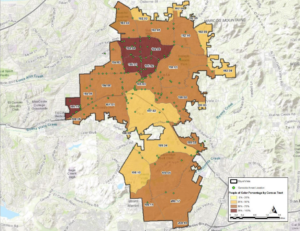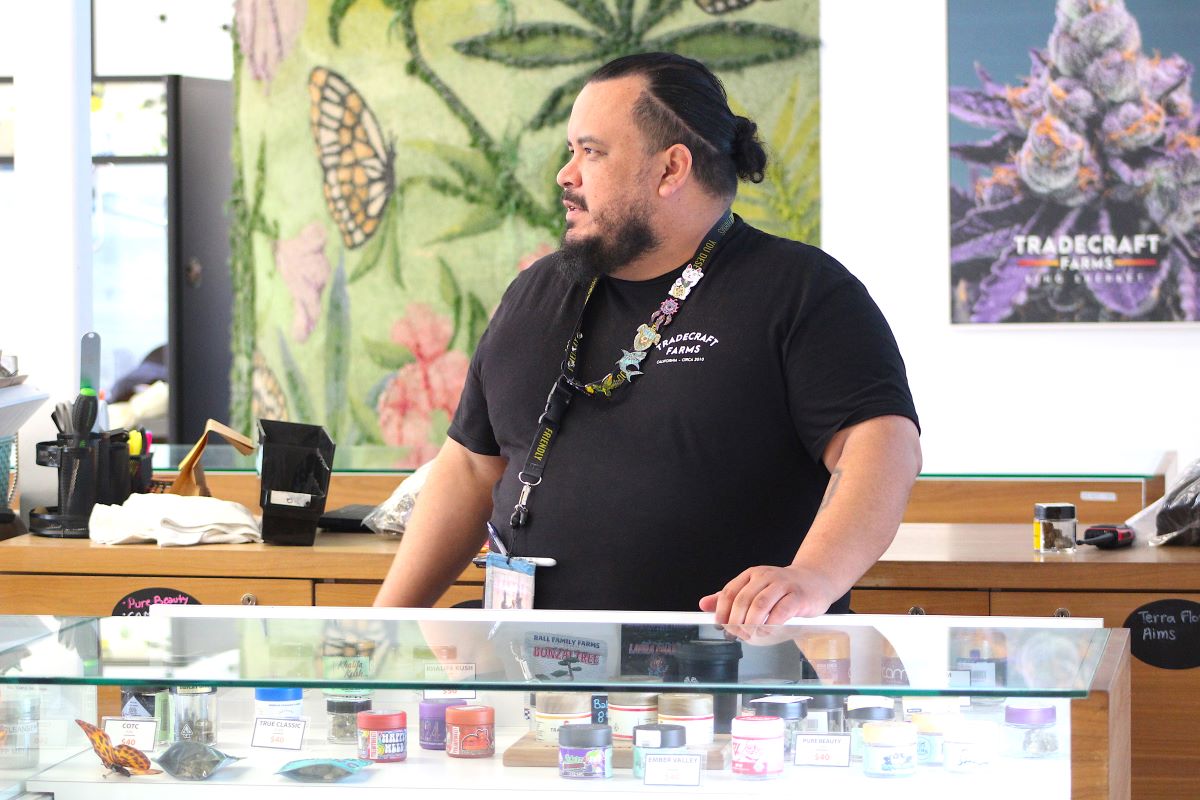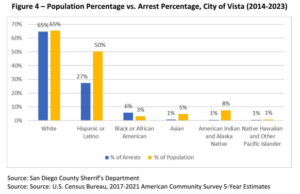VISTA — City leaders received the results of a long-awaited cannabis equity study this week, shedding light on the disproportionate impacts of cannabis enforcement in the city and providing recommendations for a program to increase equitable access to the industry.
The study was completed over the last eight months by SCI Consulting Group, which was awarded a contract by the Vista City Council last June via a $75,000 grant from the Governor’s Office of Business and Economic Development (GO-Biz).
At its Feb. 27 meeting, the council discussed the results of the study, including cannabis-related arrest data and feedback from local stakeholders regarding barriers to entry into the cannabis industry. Council members also discussed several programming options recommended by SCI to mitigate these barriers.
Going forward, city staff will use feedback from the council to bring back plans for a proposed cannabis equity program for approval in the coming months.
“I want to say ‘thank you’ to my council for moving forward with the cannabis equity study,” said Councilmember Corrina Contreras. “I know it was maybe not favored at the beginning, but I’m glad we got to a point where we moved forward with it, and that allowed us to use the state’s money — which is just our tax money coming back to Vista — to prepare this type of assessment.”
Vista has been identified as a leader in North County’s cannabis industry, allowing the operation of 11 cannabis dispensaries in the city (10 are currently active) under Measure Z in 2018, followed by recreational use in 2021. The city brought in nearly $7 million in cannabis tax revenue last year.
Recommendations
One main recommendation in the study was to set aside a specific number of cannabis business permits for candidates meeting specific equity criteria, including individuals with a cannabis conviction or arrest history or their immediate family members, low-income individuals, and those residing in Vista.

SCI also recommended programs to limit financial, technical and criminal obstacles to the industry. This could include a loan or grant program for business expenses, application fee waivers, application assistance, training curriculum in partnership with local cannabis businesses, and record expungement related to cannabis convictions.
Most of the council supported setting aside a certain percentage of cannabis business licenses for equity applicants, with Councilmember Joe Green recommending between 25% and 40%.
The majority also supported the idea of grants, which could be funded by the state once the city adopts a cannabis equity program, and waiving application fees for equity applicants. However, the council was not inclined to pursue lending options.
“I do not think the city of Vista should be the owner, potentially, of a cannabis shop, so I would not want to give out loans. I’d be open to giving out grants for that very reason,” said Councilmember Dan O’Donnell.
Council members also discussed the idea of allowing a certain number of licenses for commercial cultivation, which is not currently authorized in Vista. Back in 2022, the council pursued an ordinance to allow cannabis cultivation at the city’s business park, but ultimately decided to postpone it until social equity factors could be considered more in-depth.



Green said he would be comfortable with up to five cultivation licenses and would also be in favor of allowing up to 10 cannabis lounges in close proximity to existing dispensaries where people can consume cannabis. In addition, he suggested allowing three lounges that are all shared workspaces, allowing folks to enjoy cannabis while they work.
“I know it might sound odd to some, but to have a work-share space where people can enjoy cannabis and do what they want to do is definitely something that is appealing to the cannabis community,” said Green.
SCI also recommended that the city require equity applicants to maintain at least 51% of ownership of the business to prevent them from being taken advantage of by partners or investors while still allowing flexibility.
Councilmember Katie Melendez said she supported this idea in order to prevent predatory behavior.
Disproportionate impacts
In order to understand the impact of the war on drugs on residents, SCI examined data for 685 cannabis-related arrests recorded in Vista from 2014 to 2023, with no earlier data available from the San Diego County Sheriff’s Department.
The firm’s analysis found that Black people made up nearly 6% of cannabis-related arrests in Vista in this time frame despite comprising just 3% of the city’s population.
Other racial and ethnic groups including Whites (65.4% of the population), Hispanics/Latinos (50.25%), Asians (4.9%), and Native Hawaiians/Pacific Islanders (0.9%) did not see the same disproportionate impacts.
“When you look across the other demographic groups, their arrest rates align more closely with their population proportions or well below them. ” said SCI Senior Consultant Kyle Tankard.

Data also revealed that arrests were concentrated in Vista’s north-central region, which also holds one of the highest concentrations of non-White and low-income residents.
“We’ve identified this region to be most disproportionately impacted given the convergence of those factors,” Tankard said.
Contreras noted that this area is located largely within District 1, which she represents.
“It’s not a surprise to me, but it still is a little bit of a surprise, every time I see how District 1 has been affected by so many of these indicators, and looking at the historic generational inequities in my district. I want to ensure that we’re doing the best that we can here in the city to right a lot of wrongs that have happened,” Contreras said.
Precedent
SCI looked at existing cannabis equity programs in other cities, such as Oakland, San Francisco, Los Angeles, and Long Beach, to identify best practices for a Vista program.
These cities have identified various criteria for applicants to qualify as equity applicants. Oakland’s program specifically prioritizes residents living within specific police beat areas in their city, while Sacramento’s has prioritized residents in specific impacted zip codes.
The city of San Diego also adopted its own Social Equity and Economic Development (SEED) program in January, which would allow 18 new retail cannabis outlets in the city for individuals meeting specific criteria, including those who have been impacted by a cannabis-related conviction or arrest.
San Diego County is also in the process of establishing a Socially Equitable Cannabis Program that would allow new commercial cannabis operations in unincorporated areas of the county and also seek to remove barriers to entry into the industry.
Armand King, an advocate for cannabis equity in San Diego County, said there will be “nay-sayers” who will point out issues with how other jurisdictions have run these programs, but encouraged Vista to continue pursuing a local program.
“What we’re in position to do in Vista is to analyze all of these other failures, figure out what they did wrong, and put ourselves in a position to do this right, and not just right, but set an example for the rest of the nation on how an equity program should work, should happen, and put Vista on the map,” King said.



